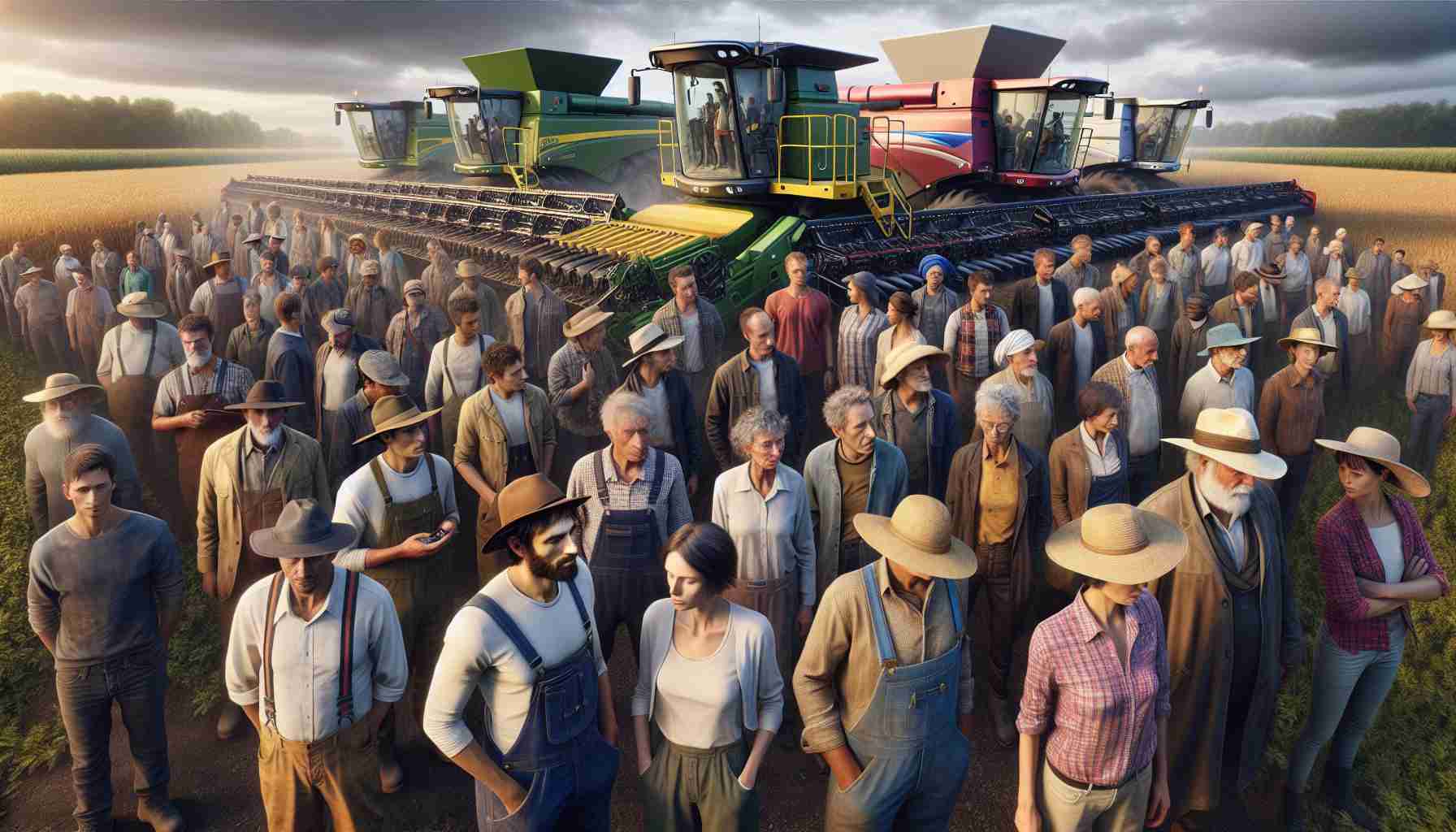The Hesitant Shift to Modern Methods
Adoption of cutting-edge agricultural technology remains a pressing issue for farmers, especially in rural areas. Recent studies indicate that many small farmers are reluctant to embrace innovations, despite the potential benefits these technologies offer. Various factors contribute to this hesitance, including limited access to resources and inadequate training on how to utilize new tools effectively.
One major obstacle is the fear of failure. Farmers often worry that investing in unfamiliar technologies may not yield expected results, especially given the unpredictable nature of their environment. Additionally, traditional practices, deeply rooted in their farming culture, make them wary of drastic changes.
Research highlights the significance of community support in overcoming these barriers. When farmers learn from fellow peers who have successfully implemented new technologies, their confidence tends to grow. Moreover, programs focused on educating farmers about the advantages of advanced techniques can cultivate a more favorable attitude towards adopting new practices.
Governments and agricultural organizations play vital roles in facilitating this transition. By providing financial incentives and training programs, they can encourage small farmers to explore innovative solutions that could enhance productivity and sustainability. Ultimately, the path forward should focus on creating a supportive network that empowers farmers to embrace change and improve their livelihoods through modern agricultural advancements.
Breaking Barriers: Accelerating the Adoption of Modern Agricultural Technologies
# Introduction to the Hesitant Shift in Agriculture
The agricultural sector is at a crossroads where technology has the potential to revolutionize farming practices. However, many small farmers, particularly in rural regions, are still hesitant to embrace modern agricultural innovations. Understanding the factors influencing this reluctance is crucial for fostering a more sustainable and productive farming environment.
# Key Factors Influencing Reluctance
Fear of Failure and Economic Concerns
A significant barrier to adopting new technologies is the fear of failure. Many farmers worry that investments in advanced tools or techniques may not yield the promised results, especially in unstable environmental conditions. This fear is compounded by tight financial margins, making the prospect of investing in unfamiliar technologies particularly daunting.
Cultural and Traditional Practices
For many small farmers, traditional agricultural practices are not just methods but a way of life. The deep cultural roots associated with these practices can make it challenging to shift toward modern methods. Farmers often rely on generations of knowledge and experience, leading to skepticism about the effectiveness of new approaches.
# The Role of Community Support
Importance of Peer-to-Peer Learning
Research has shown that community support and peer learning can significantly influence the willingness of farmers to adopt new technologies. Farmers are more inclined to experiment with innovations when they see their neighbors successfully implementing them. Therefore, creating networks that facilitate knowledge sharing among farmers is essential.
Case Studies and Success Stories
Highlighting successful case studies can serve as powerful motivators. When farmers learn about local peers who have benefited professionally and financially from adopting new technologies, it can enhance their confidence in taking similar steps.
# Government and Organizational Support
Financial Incentives and Training Programs
Governments, NGOs, and agricultural organizations play pivotal roles in bridging the gap between traditional and modern practices. Offering financial support, such as subsidies or grants for purchasing new technologies, can alleviate the economic burden on farmers. Additionally, tailored training programs that focus on the practical application of technology can empower farmers to make informed decisions.
Innovations in Agricultural Policy
Recent trends indicate that agricultural policy is beginning to shift toward more inclusive and supportive measures for small farmers. This includes not just financial assistance but also integrating technological education into farming programs at the community level.
# Future Trends and Innovations
Embracing Sustainability
As farmers face increasing pressure to implement sustainable practices, the adoption of modern technologies becomes even more relevant. Innovations such as precision agriculture, which utilizes data analytics to optimize resource use, present opportunities for increased efficiency and sustainability in farming operations.
Predictions for Technology Adoption Rates
Experts predict that with the right incentives and community support systems in place, the adoption of agricultural technology could see a significant increase in the coming years. This shift is essential for maintaining food security and addressing climate change challenges.
# Conclusion
The transition to modern agricultural methods requires more than just new technologies; it necessitates a comprehensive approach that includes community engagement, government support, and education. By breaking down the barriers of fear and resistance, we can pave the way for a more resilient agricultural sector that benefits both farmers and the environment.
For further insights into advancements in agriculture, visit this resource.
